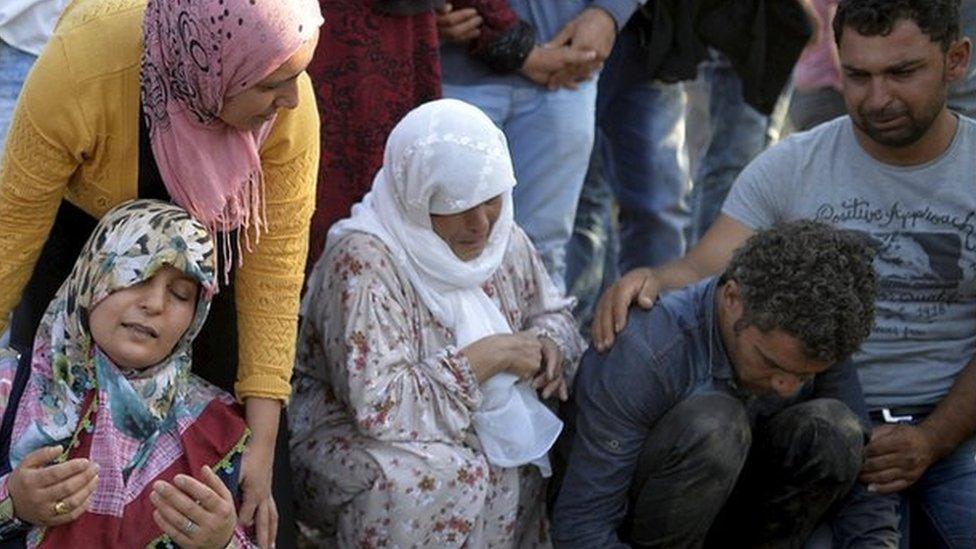Ankara blasts: Bombers 'linked to Islamic State'
- Published
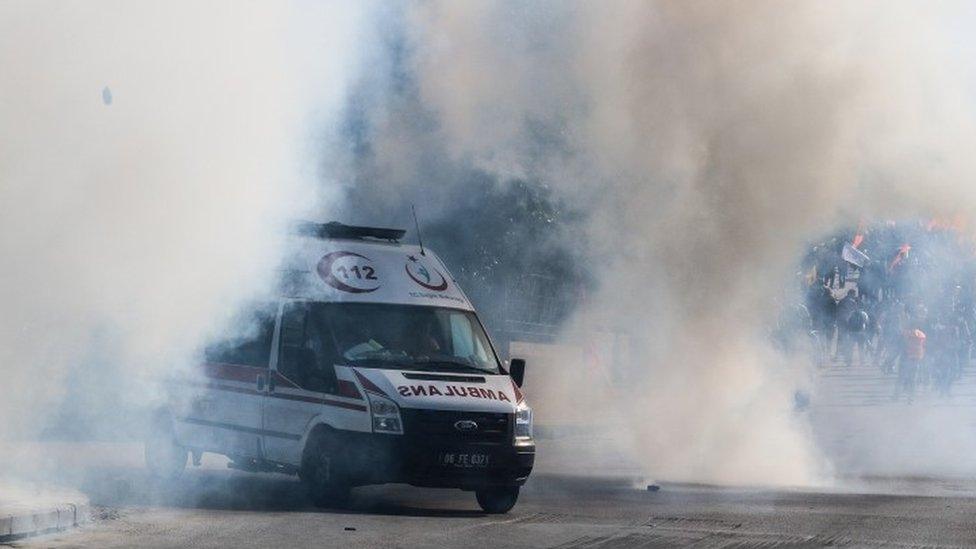
The bombers struck as as crowds were gathering for a rally against violence between Turkish government forces and the outlawed PKK
Two suicide bombers who carried out Saturday's attacks in Ankara are thought to have links to Islamic State (IS), Turkish officials have told the BBC.
Their names are Yunus Emre Alagoz and Omer Deniz Dundar, officials confirmed.
The attacks in the capital, the worst in Turkey's modern history that left 97 people dead, triggered widespread anger against the government.
Ankara's police, intelligence and security chiefs have been suspended.
The bombers struck as crowds were gathering for a rally against violence between Turkish government forces and the outlawed PKK (Kurdistan Workers Party).
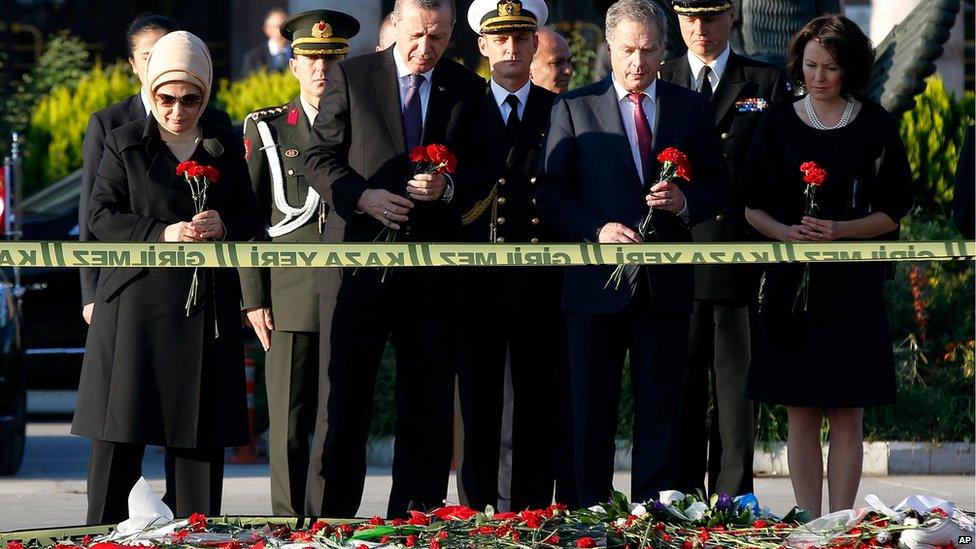
President Recep Tayyip Erdogan visited the site of the bombing on Wednesday
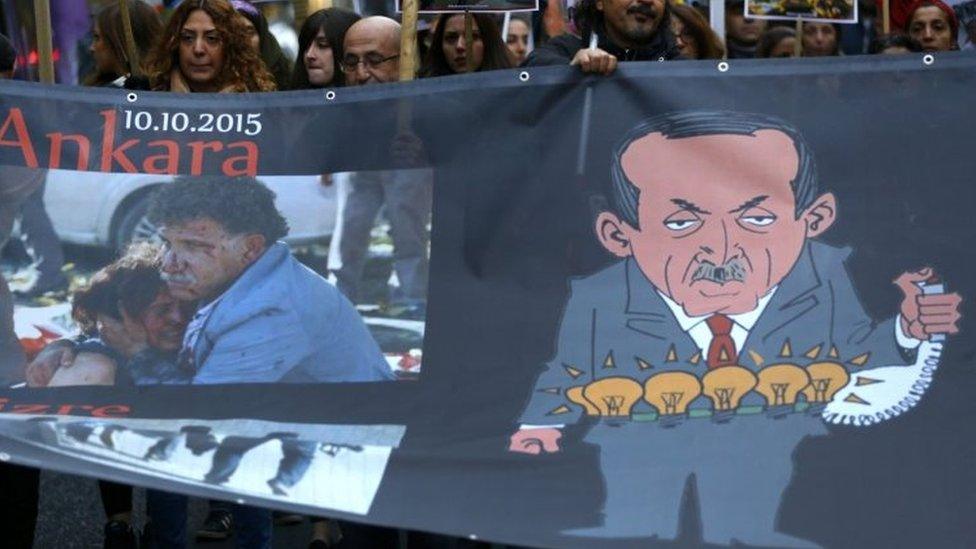
Mr Erdogan has been criticised not addressing the nation about the tragedy
An official told the BBC's Mark Lowen in Istanbul that the first bomber was the brother of the man who carried out the bombing in the southern Turkish town of Suruc in July, killing more than 30 people.
The second is said to have been in Syria on two occasions.
Our correspondent says that while it is thought both men had links to IS, Turkey's Prime Minister Ahmet Davutoglu has said IS militants may have collaborated with their PKK counterparts.
That would be unusual, our correspondent says, because the two groups are sworn enemies and the target of the Ankara attack was a mainly Kurdish gathering.
The interior ministry meanwhile has said the move to suspend the police, intelligence and security chiefs would enable a "robust" investigation to go ahead.
President Recep Tayyip Erdogan visited the site of the bombing on Wednesday. He has been criticised for not yet addressing the nation four days on from Turkey's worst ever attack and a time of national tragedy.
Separately, two people have been arrested with alleged links to the PKK for apparently tweeting before the attack that a bombing in Ankara was imminent.
The authorities are trying to establish if they had links to the bombers.

Ankara bombings: Read more
How dangerous is Turkey's unrest? - What are the risks of the crisis deteriorating?
"This is the worst scene I've ever seen" - Shock and anger in Ankara as mourning begins
Blasts divide Turkish media - Not all commentators share the view that IS is to blame
The suspects - A look at the groups that might be responsible

In his first public comments after the bombing, President Erdogan admitted there had been intelligence failings.
There has been widespread anger against the government for failing to prevent the attack.
Mr Erdogan laid flowers for the victims as he visited the site of the attack with Finnish President Sauli Niinisto on Wednesday.
Turkey is politically polarised, and a ceasefire between the government and the PKK broke down in July.
The country is holding a national election on 1 November, a rerun of a vote in June in which the pro-Kurdish HDP won parliamentary seats for the first time, depriving Mr Erdogan's AK Party of its majority.
Most of the victims of the Ankara attack were HDP activists, and the party has said it was specifically targeted.

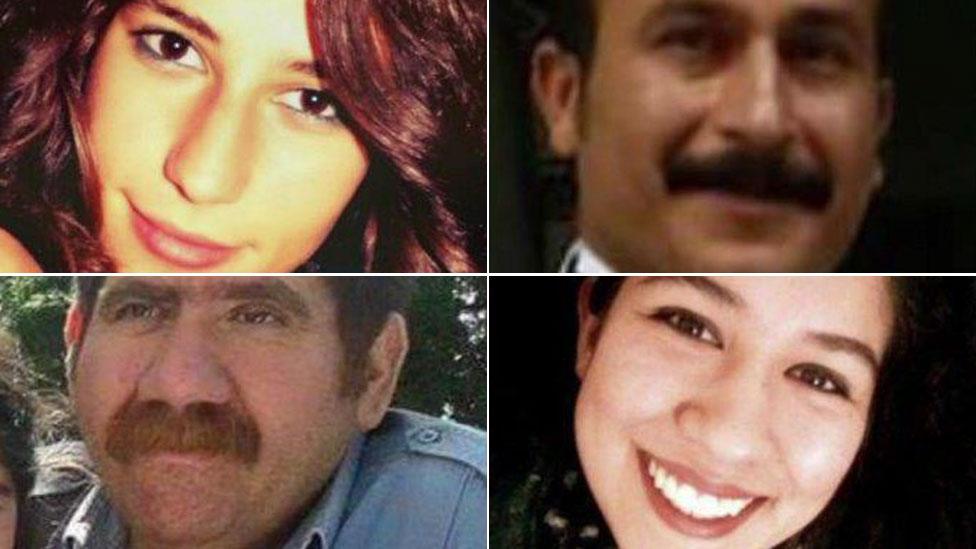
The victims
Turkey is mourning the deaths of at least 97 people. These are just a few of those who lost their lives, clockwise from top left:
Elif Kanlioglu: A 20-year old student in her second year of university, who loved studying foreign languages.
Yilmaz Elmascan: Described by a friend as a peace-loving man, who got married last year. His wife is also said to have been killed in the attack.
Sebnem Yurtman: Studied at Ankara university, and later in Adana. She was described as "full of life".
Mesut Mak: He was a member of an agriculture and forestry union. He had a daughter.

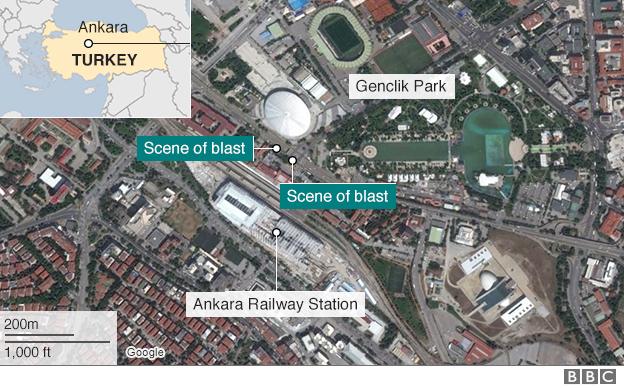
- Published10 October 2015
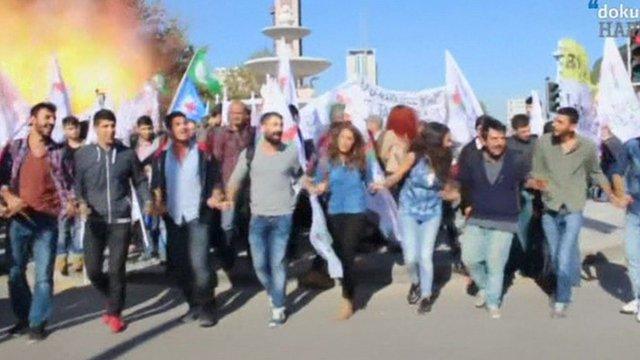
- Published10 October 2015
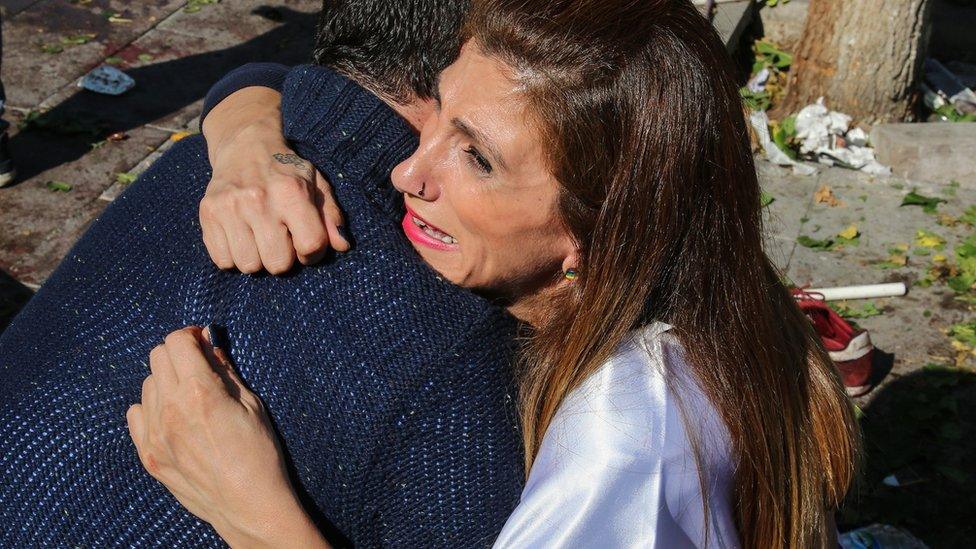
- Published2 December 2015
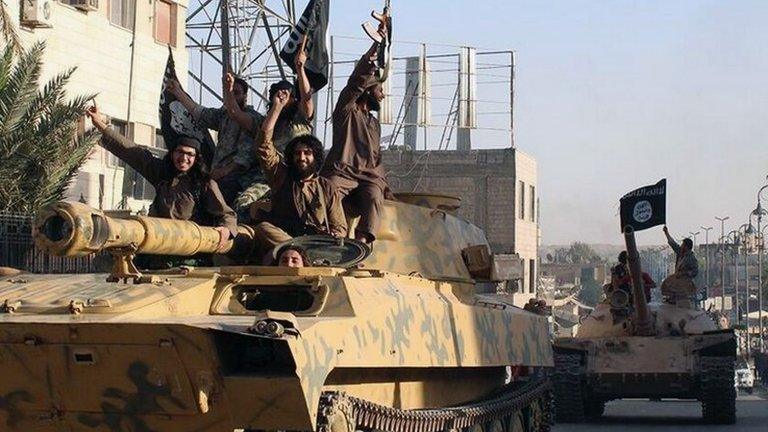
- Published23 August 2016
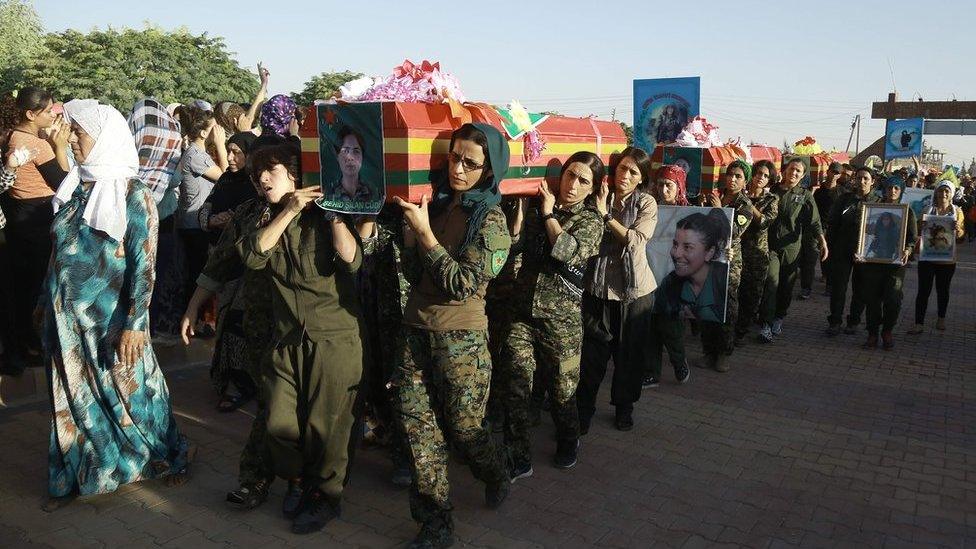
- Published21 July 2015
